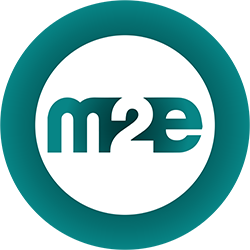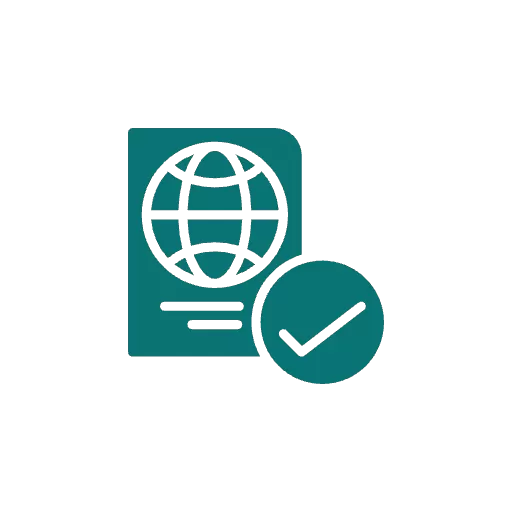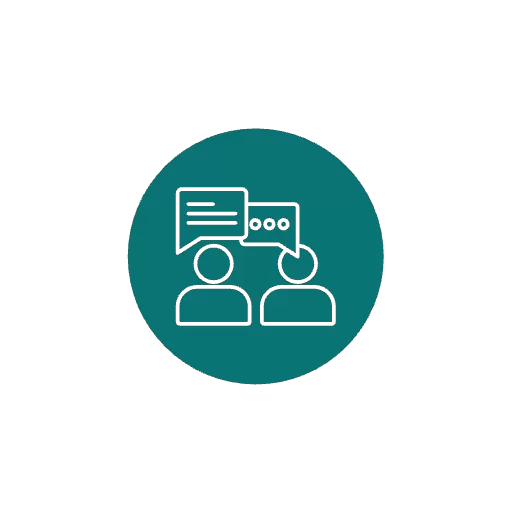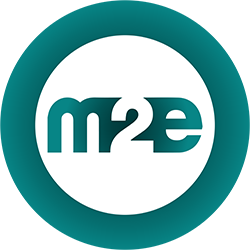
What are the benefits of working in Denmark?
Imagine a place where your career thrives and your personal life flourishes in perfect harmony. Does this sound too good to be true? Welcome to Denmark, the land of hygge, happiness, and unparalleled work benefits!
Are you tired of the never-ending rat race, constantly juggling work demands and personal time? Denmark offers a refreshing alternative, where work-life balance isn't just a buzzword—it's a way of life. From high living standards to a progressive work culture, this Scandinavian gem redefines what it means to have a fulfilling career. But that's not all! Denmark's robust social security system, international career opportunities, and exceptional quality of life make it a dream destination for professionals worldwide.
So, what exactly makes working in Denmark so special? Let's dive into the six key benefits that are turning heads and attracting talent from across the globe. Prepare to be amazed as we explore the unique advantages of building your career in this Nordic paradise!
Work-Life Balance
Generous vacation policies
Denmark is renowned for its generous vacation policies, which offer workers ample time to recharge and enjoy life outside work. The standard annual leave in Denmark is typically five weeks, with some companies offering even more. This generous allocation allows employees to maintain a healthy work-life balance and pursue personal interests.
|
Vacation Policy |
Denmark |
Global Average |
|---|---|---|
|
Annual Leave |
5 weeks |
2-3 weeks |
|
Public Holidays |
9-13 days |
8-10 days |
Flexible working hours
Many Danish companies embrace flexible working arrangements, allowing employees to adjust their schedules to fit their personal needs. This flexibility often includes:
- Core hours with flexible start and end times
- Remote work options
- Compressed workweeks
- Job sharing opportunities
Parental leave benefits
Denmark offers some of the world's most generous parental leave benefits, supporting mothers and fathers in balancing work and family life. Key features include:
- 52 weeks of paid parental leave
- Fathers are entitled to 2 weeks of paternity leave
- Option to extend leave with partial pay
- Job security during leave period
Focus on employee well-being.
Danish work culture prioritises employee well-being, recognising that happy and healthy workers are more productive. Companies often provide:
- On-site fitness facilities or gym memberships
- Mental health support and counseling services
- Team-building activities and social events
- Ergonomic workspaces and equipment
This comprehensive approach to work-life balance makes Denmark an attractive destination for professionals seeking a fulfilling career without sacrificing personal life. Next, we'll explore how this balance contributes to the country's high standard of living.
High Standard of Living
A. Competitive salaries
Denmark consistently ranks among the top countries for high wages across various industries. The average salary in Denmark is significantly higher than in many other European countries, allowing workers to enjoy a comfortable lifestyle. Here's a comparison of average annual wages in different sectors:
|
Sector |
Average Annual Salary (DKK) |
|---|---|
|
IT |
550,000 |
|
Finance |
520,000 |
|
Engineering |
500,000 |
|
Healthcare |
480,000 |
|
Education |
450,000 |
B. Universal healthcare system
One of the most significant benefits of working in Denmark is access to its world-class healthcare system. The Danish healthcare system is:
- Free at the point of use
- Comprehensive, covering most medical needs
- Accessible to all residents, including foreign workers
- Known for short waiting times and high-quality care
C. Quality education opportunities
Denmark's commitment to education extends beyond its citizens to the children of foreign workers. The country offers:
- Free public education from primary school through university
- International schools for expat families
- Adult education and language courses for integration
D. Safe and clean environment
Working in Denmark means living in one of the safest and cleanest countries in the world. The country boasts:
- Low crime rates
- Clean air and water
- Excellent public transportation
- Eco-friendly initiatives and green spaces
These factors contribute significantly to Denmark's high standard of living, making it an attractive destination for foreign workers seeking a better quality of life.
Progressive Work Culture
Flat organisational structures
Denmark's progressive work culture is exemplified by its flat organisational structures. This approach fosters open communication and reduces hierarchical barriers, enabling employees to contribute ideas freely regardless of their position.
|
Traditional Hierarchy |
Flat Structure in Denmark |
|---|---|
|
Multiple layers |
Fewer management levels |
|
Top-down decisions |
Collaborative decisions |
|
Limited accessibility |
Direct access to leadership |
Emphasis on teamwork and collaboration
Danish workplaces prioritise teamwork and collaboration, recognising that collective efforts often yield superior results. This collaborative spirit is ingrained in the work culture, promoting:
- Shared responsibility for projects
- Regular team meetings and brainstorming sessions
- Cross-functional cooperation
- Open-plan office spaces to facilitate interaction
Innovation-driven workplaces
Innovation is at the heart of Denmark's work culture. Companies encourage creative thinking and risk-taking, creating an environment where new ideas can flourish. This approach has led to Denmark's consistently ranking high in global innovation indices.
Opportunities for professional development
Danish employers understand the importance of continuous learning and growth. They often provide:
- Regular training programs
- Mentorship opportunities
- Support for further education
- Skill development workshops
This focus on professional development benefits employees and contributes to Danish businesses' overall competitiveness in the global market.
Now that we've explored the progressive work culture in Denmark, let's examine the comprehensive social security and benefits system that supports workers in this Scandinavian nation.
Social Security and Benefits
Comprehensive unemployment insurance
Denmark's unemployment insurance system is one of the most generous in the world. If they lose their jobs, workers who contribute to an A-kasse (unemployment insurance fund) can receive up to 90% of their previous salary for up to two years. This safety net provides peace of mind and financial stability during career transitions.
|
Feature |
Benefit |
|---|---|
|
Coverage |
Up to 90% of previous salary |
|
Duration |
Up to 2 years |
|
Eligibility |
Membership in A-kasse |
Robust pension system
The Danish pension system is a model of efficiency and security. It consists of three pillars:
- State pension (Folkepension)
- Occupational pension schemes
- Private pension savings
This multi-tiered approach ensures a comfortable retirement for workers, with Denmark consistently ranking among the top countries for pension sustainability and adequacy.
Disability support
Denmark's commitment to inclusivity is evident in its comprehensive disability support system. Workers who become unable to work due to disability can access:
- Flexible job arrangements
- Rehabilitation programs
- Financial support through disability pensions
These measures ensure that individuals with disabilities can maintain their dignity and quality of life.
Family-friendly policies
Denmark's family-friendly policies are renowned worldwide, making it an attractive destination for working parents. Key benefits include:
- Generous parental leave (up to 52 weeks shared between parents)
- Subsidized childcare
- Flexible working hours
These policies contribute to Denmark's high female workforce participation rate and overall work-life satisfaction.
Now that we've explored Denmark's robust social security and benefits system, let's explore the international career opportunities this Nordic country offers.
International Career Opportunities
English-friendly work environment
Denmark's commitment to internationalisation has led to the widespread use of English in professional settings. Many companies operate primarily in English, making it easier for expatriates to integrate seamlessly. This English-friendly environment extends beyond the workplace, with many public services and everyday interactions available in English.
|
Aspect |
Description |
|---|---|
|
Business Language |
English widely used |
|
Documentation |
Often available in English |
|
Communication |
Meetings and emails in English |
|
Customer Service |
English support common |
Multicultural workplaces
Danish companies embrace diversity, creating vibrant multicultural workplaces. This diversity fosters innovation and global perspectives, benefiting both employees and organisations.
- Cultural exchange opportunities
- Diverse team collaboration
- Global networking possibilities
- Exposure to international business practices
Access to the European job market
Working in Denmark opens doors to the broader European job market. As an EU member state, Denmark offers:
- Free movement within the EU for work
- Recognition of professional qualifications across member states
- Participation in EU-wide job search platforms
- Opportunities for cross-border projects and assignments
Global company presence
Many international corporations have established a significant presence in Denmark, providing opportunities for global career advancement. These companies often offer:
- International relocation programs
- Cross-border team collaborations
- Global training and development initiatives
- Exposure to multinational projects and clients
Denmark's position as a hub for innovation and sustainability attracts global talent, creating a dynamic environment for career growth and international networking. This global presence and the country's strong economy and high quality of life make Denmark an attractive destination for professionals seeking international career opportunities.
Quality of Life Outside Work
Excellent public transportation
Denmark's commitment to sustainable living is evident in its world-class public transportation system. Cities like Copenhagen boast an extensive network of buses, trains, and metros that are both efficient and environmentally friendly. The ease of commuting allows residents to:
- Save time and reduce stress
- Minimize carbon footprint
- Explore the country with ease
Rich cultural experiences
The Danish cultural scene is vibrant and diverse, offering numerous opportunities for personal enrichment outside work hours. From modern art museums to historical landmarks, Denmark caters to various interests:
|
Cultural Attraction |
Description |
|---|---|
|
Louisiana Museum |
Modern art in a stunning coastal setting |
|
Tivoli Gardens |
Historic amusement park and cultural venue |
|
Royal Danish Theatre |
World-class performances of opera and ballet |
Beautiful nature and outdoor activities
Denmark's landscape is a testament to natural beauty, with its pristine beaches, lush forests, and rolling hills. Outdoor enthusiasts can enjoy:
- Cycle through scenic routes
- Hiking in national parks
- Kayaking in fjords and coastal waters
High levels of happiness and life satisfaction
Consistently ranking among the happiest nations in the world, Denmark offers a quality of life that extends far beyond the workplace. Factors contributing to this high level of satisfaction include:
- Strong social connections
- Trust in government and institutions
- Emphasis on personal well-being and work-life balance
With these elements in place, living and working in Denmark provides a holistic experience that nurtures professional growth and personal fulfillment. As we explore next, this combination of factors makes Denmark an attractive destination for international career opportunities.
Conclusion: Denmark offers many advantages for those seeking a fulfilling career and a balanced lifestyle. From its renowned work-life balance to a high standard of living, the country provides an environment where professionals can thrive in and out of the office. The progressive work culture fosters innovation and personal growth, while comprehensive social security and benefits ensure peace of mind for employees and their families.
Denmark's international career opportunities offer global experiences and professional development for those looking to expand their horizons. Beyond the workplace, the country's exceptional quality of life, including its clean environment, safe cities, and rich cultural scene, makes it an attractive destination for professionals from all walks of life. By choosing to work in Denmark, individuals can enjoy a rewarding career while embracing a lifestyle prioritising well-being, personal growth, and overall satisfaction.
Are you looking for step-by-step assistance with Overseas Immigration? Talk to Moving2Europe.eu Europe's No. 1 Overseas Immigration Company.
FAQs About the Benefits of Working in Denmark
What are the key benefits of working in Denmark?
- Employees in Denmark benefit from paid leave, free healthcare, pension contributions, unemployment insurance, flexible working hours, and a strong social security system.
How much paid leave do employees get in Denmark?
- Employees are entitled to five weeks (25 days) of paid annual leave in addition to public holidays.
Is healthcare free for employees in Denmark?
- Yes, Denmark has a universal healthcare system that offers free medical services, including consultations, hospital treatments, and specialist care.
What is the Danish pension system?
- The Danish pension system consists of a state pension, occupational pension (paid by the employer), and private savings, ensuring long-term financial security.
Is paid sick leave available in Denmark?
- Yes, employees are entitled to up to 22 weeks of paid sick leave over nine months, depending on the collective agreements and employment terms.
What is unemployment insurance in Denmark?
- Employees can receive unemployment benefits through membership in an unemployment insurance fund (A-kasse), which provides income support during periods of unemployment.
How long is maternity and paternity leave in Denmark?
- Mothers receive 18 weeks of maternity leave, and fathers are entitled to two weeks of paternity leave. Parents can share 32 additional weeks of parental leave.
What is the standard workweek in Denmark?
- The typical workweek is 37 hours, with a strong focus on work-life balance.
What is the average salary in Denmark?
- The average monthly salary in Denmark is around DKK 40,000 – 45,000 (€5,300 – €6,000), depending on the sector and experience.
Are there job opportunities for foreign workers in Denmark?
- Yes, sectors like IT, engineering, healthcare, pharmaceuticals, and green energy have high demand for foreign professionals.
Do foreign workers have the same rights as Danish citizens?
- Yes, foreign workers have the same labor rights, including equal pay, social security, and access to public services.
What industries are most in demand in Denmark?
- Healthcare, IT, engineering, construction, green energy, and education are among the top sectors in demand.
Is housing affordable in Denmark?
- Housing costs vary by city. Copenhagen and Aarhus are more expensive, but smaller towns offer more affordable options.
What is the cost of living in Denmark?
- Denmark has a high cost of living, but high wages, free healthcare, and substantial social benefits offset this.
Do employers in Denmark offer additional benefits?
- Many employers provide meal allowances, transportation subsidies, pension contributions, and professional development programs.
Is there a good work-life balance in Denmark?
- Yes < UNK> Denmark is known for its excellent work- life balance, flexible working hours, and family-friendly policies.
Are there tax advantages for foreign workers in Denmark?
- Certain foreign workers can benefit from the unique tax scheme, which offers a lower tax rate for up to seven years.
Can foreign workers bring their families to Denmark?
- Yes, family reunification is allowed, and family members have access to healthcare, education, and public services.
Is there support for professional development in Denmark?
- Yes, Denmark promotes lifelong learning, and many employers offer training programs and skill development opportunities.












